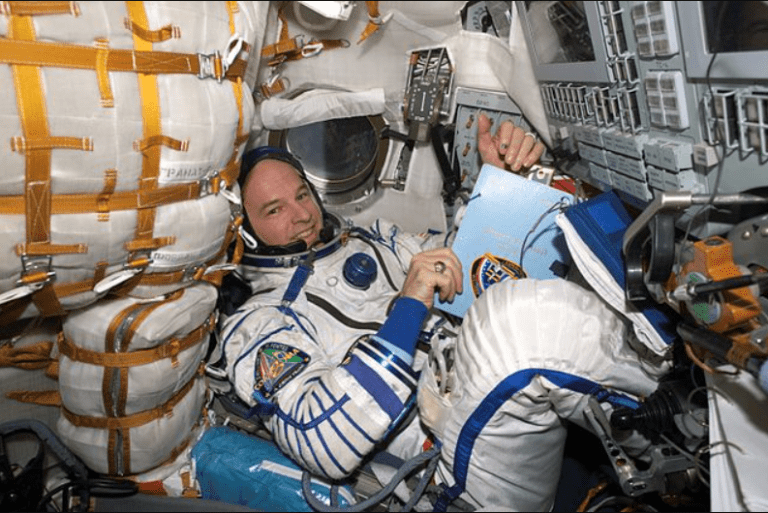
A NASA astronaut who formerly held the American record for cumulative days in space says he believes science and the Bible are in harmony, not conflict.
Astronaut Jeffrey Williams took part in four space missions from 2000 to 2016, first on the Space Shuttle Atlantis and the next three aboard a Russian Soyuz rocket to the International Space Station. His 534 cumulative days in space ranks second all-time among Americans and formerly ranked first before being broken by fellow astronaut Peggy Whitson.
Williams recently spoke at the opening of a new exhibit at the Museum of the Bible, “Scripture and Science: Our Universe, Ourselves, Our Place.” The exhibition – which runs through January 2024 – explores the relationship between science and religion. The Museum of the Bible is located in Washington, D.C.
“I get the question all the time – ‘How can I be in the business that I’m in and be a Believer at the same time?'” Williams told Christian Headlines. Williams, a Christian, released a faith-themed book in 2010 that includes pictures he took from space. It was titled, The Work of His Hands: A View of God’s Creation from Space. He acknowledged a “public perception that science and the Bible are in conflict.”
Williams continued, “So early in my career, even back in the 90s, I spent a lot of time studying the theme. Modern science as we know it came out of the conviction that the Bible was true and that God is the Creator, as He has revealed Himself in the Scripture. And in that creation, He provisioned it and ordered it.”
Williams said he had been impacted by the “order” of math, physics, chemistry and music. “And then bearing the image of God, we’re given this ability and actually mandate to subdue the creation right there in Genesis 1,” he said. “Those are the elements that fed my understanding, my worldview, and actually substantiated what I believe has been the calling of the Lord in my life, in this job that we call astronaut. So [faith has] only substantiated my understanding in that.”
The earliest scientists, he noted, were “driven by their faith.” He mentioned Johannes Kepler, Isaac Newton, Michael Faraday and James Clerk Maxwell. They were “theologians first and driven by their faith,” he said.
“And that’s what gave rise to modern science,” he said. Williams said he’s often asked if traveling to space changed his relationship with God. In one sense, he answered, but it did not. “I have a relationship with God because of the mediating work of Jesus Christ as revealed in the Scripture,” Williams said.
Still, traveling to space did give him a “depth” of understanding specific biblical passages that he previously did not have. He mentioned God’s “work as creator” and “His work of sustaining His creation.”
“There’s a sense that it takes on much more depth if you will, and meaning and in magnitude, in scope, and depth of meaning, and into looking through the lens of Scripture,” Williams told Christian Headlines. “So it was an amazing experience to get off the planet, and then look back at the part of the universe that we call home, which is uniquely provisioned for our habitation – as the prophet Isaiah says – and then look at all the details and consider the details of that provisioning.”


